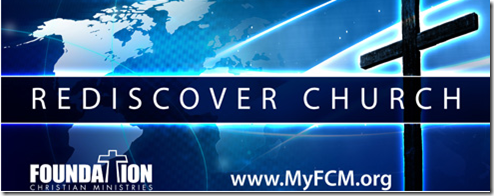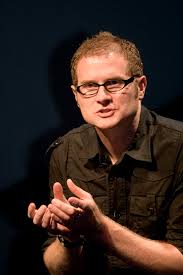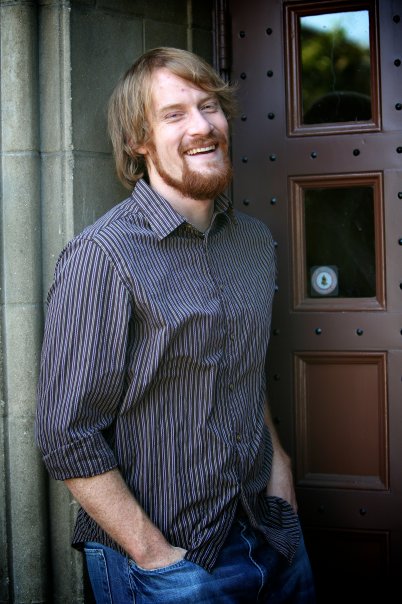(sub-title: Apophasis and Pigs with Lipstick)
(a.k.a. Josh, Perhaps Unwisely, Takes the Gloves Off)

At the end of the day, what “a new conversation” means to me is a new kind of openness and humility in our conversations about faith. In fact, I would argue, as I have often shared when I have taught about spirituality, that such an openness is what makes faith faith.
The way that Christian theology (esp. in the East) talks about this is through apophatic approaches to theology; a.k.a. “negative theology,” which emphasizes that which we inherently know to be true:
GOD. IS. MYSTERY.
And so when postmodern theology says that all our theologies, doctrines, and ideas about God are interpreted—for me, that is a reaffirmation of this very ancient idea: at the end of the day, we don’t know diddly-squat. Our theologies are our imperfect attempts to grasp the ineffable.
———————————————————————-
In my mind, if Christians could simply affirm this statement, and therefore have a more open approach to their own beliefs and to others, we would go a long way in a) both deepening our own sense of faith, and b) addressing the postmodern critiques of the church. We would, in my opinion, have a far more compelling witness of faith to give to the world—and the postmodern world in particular.
What hurts that witness, however, is churches that are mimicking the forms of “relevant Christianity,” but are actually doing promoting the exact same narrowness and shallow faith that the modern church has been offering for centuries:
Possible EXAMPLE A: I was driving back home from the youth retreat I was leading this weekend, from San Antonio to Huntsville, and per usual I drove through the town of Bastrop. On the highway there I saw this billboard:

Obviously geared towards “post-Christians”—those who have left the church—the word “Foundation” implies that this “church” (or “ministry,” whatever they call themselves) sees themselves as the providers of what is “foundational” to faith—which in our culture, usually means “a certain explication of doctrine.” (I guess they think that they just explain it better, or less boring, or more faithfully, than whatever church experience their target audience had before.)
I checked out their website when I got home; unsurprisingly, I wasn’t impressed.
Of course, you don’t have to drive through Texas long, I’ve discovered, before you’ll see a billboard that targets “post-Christians.” I wonder how often those billboards translate into a person finding an authentic community where faith is nurtured and service is rendered. And, I wonder if the people who are further jaded and pissed off by the church or its presumptuous signs outnumber those who are suddenly inspired to join a church again while driving down the highway.
Possible EXAMPLE B: Christians in large part have ignored their Jewish history for the majority of their existence, which is in my opinion a major mistake. That tendency, though, has  shifted in recent years— it seems to me that ever since Rob Bell—the “postmodern-friendly”-preacher-turned-reluctant-megachurch-pastor-and-prolific-speaker—became famous for talking about Jesus’ Jewishness and for preaching heavily from Leviticus and Numbers, more and more preachers seem to be spending time elaborately explaining the Hebrew Scriptures. (I recently saw this example on TV.)
shifted in recent years— it seems to me that ever since Rob Bell—the “postmodern-friendly”-preacher-turned-reluctant-megachurch-pastor-and-prolific-speaker—became famous for talking about Jesus’ Jewishness and for preaching heavily from Leviticus and Numbers, more and more preachers seem to be spending time elaborately explaining the Hebrew Scriptures. (I recently saw this example on TV.)
And more are using whiteboards to do their very elaborate, “scholarly” talks. 
This conference’s ads had that “Rob Bell” feel and a “postmodern” art and style—but seriously, when your keynote is the president of the Southern Baptist Convention, how “postmodern” are you going to be?
And more are wearing glasses—although that’s probably not related to Bell. I concede that that probably has something to do with eyesight, and with the general belief that glasses make you look smarter.
(But see, now, thanks to Bell, smart is sexy!)
The thing is, Christians [often dispensationalist evangelicals] have been leading Holy Land tours and [erroneously] quoting Hebrew prophecies to “prove” their own theological agendas for a while, now—but I wonder how much Mars Hill’s success has led to a number of stylistic copycats—who are simply preaching the same message as they always have?
Possible EXAMPLE C: That leads me to one of the more egregious offenders of the "trying to look relevant and cool but really just doing the same things the church has always done”-problem: the other Mars Hill Church in Seattle, along with Mark Driscoll and his Resurgence Movement [A.K.A. Operation Screw Seminary], which has popularized what I might call a “Pissed-Off Hyper-Not-So-Calvinistic Calvinism with Reduced Fat.” [“Fat,” in this statement, means, “theological and spiritual depth.”]
He has gained a HUGE following. Even as you read this, somewhere in the world there is a “Driscollian” already plotting my web-based evisceration… and maybe that person is you. [Hi there, btw. Hope you’re having a great day. Jesus loves you.] And his methodology has been both copied and planted in church communities all over the country (admittedly it is not entirely his methodology… but his popularity has been markedly influential).

Minions, I implore you…. ATTACK!!!
(but only if you’re a dude.)
(Okay, that’s a little over the top. Sorry. )
Driscoll was buddies with McLaren, as the story goes—until he realized that he and the rest of the Emerging-questioners were beginning to ask scary questions about God and gender, scripture, hell, atonement, foreknowledge, predestination….things that are apparently untouchable (even though MILLIONS of Christians around the world, throughout history, have all kinds of opinions about these matters). Just the questions themselves were enough to provoke him to openly condemn McLaren and others as heretics, and to then openly mock their views of Jesus as “hippie” and “limp-wristed.” [McLaren responds to this famous Driscollian description later in the book—so we’ll go there later.]
Besides the overt aggression that drips off of him and his unrelenting willingness to offend whenever I have heard him speak (admittedly a small sample size) or read his writings, my biggest problem with Driscoll is that he constantly seems to place himself in the “countercultural” category— in order to be countercultural, in other words, you have to believe in a masculine God, pain and suffering as God-ordained, penal substitution as the centerpiece of salvation, male leadership, etc…. and that anyone who might question these things, among others, doesn’t really take the Gospel seriously and has acquiesced to the world.
Except, that message is the “cultural” message— it’s the reduced Gospel-message that is common to the church in its modern expression (which developed originally in response to modern culture). It’s not as radical as he makes it out to be… except for its radical brazenness and dismissal of other opinions. In my eyes, it seems that Driscoll is the one trying to be relevant… or at least appear so.
That’s not to say that everything Driscoll’s Mars Hill, or any of the churches that are putting on the “face” of postmodernity without the “substance” of it, do, is bad. Far from it. But as popular as these churches are, I fear that the backlash and the “anti-witness” they create may be more severe than the brand of Christianity that they are selling.
There is a big difference in trying to be relevant, to look relevant, or to appeal to people, and actually being relevant, real, authentic, and most importantly, humble and open (Just look at the seeker church movement). Contrary to popular belief, the latter IS based out of conviction.
If so-called “post-Christians” cannot tell the difference between the two anymore, I fear that Christians will continue to all be painted with the same brush of acquiescent, reductionistic narrow-mindedness, and any existing sliver of opportunity for them to open themselves up to faith will close off entirely.
GOD. IS. MYSTERY…. and HOWEVER you look stylistically as a church community, affirming that mystery (as Calvin did) is where the “new conversation” begins.


![]()









